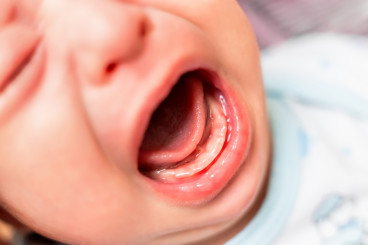Limited Oral Evaluation: Explanation
A limited oral evaluation is a focused dental examination that is performed to assess a patient's specific oral health concern or problem. This type of evaluation is typically shorter and more targeted than a comprehensive oral examination, which involves a thorough assessment of the entire oral cavity and surrounding structures.
Purposes of Oral Evaluation
The primary purpose of a limited oral evaluation is to identify the nature and extent of a particular issue, such as a toothache, sensitive teeth, or suspected oral disease. It allows the dentist to quickly evaluate the affected area, determine the appropriate course of treatment, and provide recommendations for the patient's immediate needs.
When is a Limited Oral Evaluation Necessary?
Patients may require a limited oral evaluation for a variety of reasons, including:
- Acute dental pain or discomfort: If a patient is experiencing sudden, localized pain or discomfort in their mouth, a limited evaluation can help the dentist identify the underlying cause and provide appropriate treatment.
- Follow-up to a previous dental procedure: Patients may need a limited evaluation to assess the healing progress or address any complications following a recent dental treatment, such as a filling, root canal, or tooth extraction.
- Suspected oral health issues: If a patient notices changes in their oral health, such as swelling, bleeding, or unusual growths, a limited evaluation can help the dentist diagnose the problem and determine the next steps.
- Ongoing dental concerns: Patients with existing dental conditions, such as gum disease or temporomandibular joint (TMJ) disorders, may require periodic limited evaluations to monitor their progress and make necessary adjustments to their treatment plan.
What Happens During a Limited Oral Evaluation?
During a limited oral evaluation, the dentist will focus their attention on the specific area of concern. This typically involves the following steps:
- Medical and Dental History Review: The dentist will review the patient's medical and dental history, including any ongoing health conditions, medications, and past dental treatments.
- Oral Examination: The dentist will closely examine the affected area, using various diagnostic tools such as dental mirrors, probes, and X-rays (if necessary) to assess the condition of the teeth, gums, and surrounding structures.
- Diagnosis and Treatment Planning: Based on the findings of the examination, the dentist will provide a diagnosis and recommend an appropriate course of treatment. This may involve a simple procedure, such as a filling or prescription for medication, or a referral to a specialist for more complex issues.
- Patient Education and Recommendations: The dentist will explain the findings to the patient, answer any questions, and provide guidance on proper oral hygiene and self-care techniques to address the specific concern.
Benefits of a Limited Oral Evaluation
There are several benefits to seeking a limited oral evaluation, including:
- Prompt Attention to Immediate Concerns: By focusing on the specific issue, the dentist can quickly identify the problem and provide timely treatment, which can help alleviate pain and prevent the condition from worsening.
- Cost-Effective Approach: A limited oral evaluation is generally less expensive than a comprehensive examination, as it involves a more targeted assessment and treatment plan.
- Convenience and Efficiency: The focused nature of a limited oral evaluation allows the dentist to efficiently address the patient's immediate needs, saving time and minimizing disruption to the patient's daily routine.
- Ongoing Monitoring and Maintenance: Regular limited evaluations can help the dentist monitor the patient's oral health and make necessary adjustments to their treatment plan, ensuring the best possible outcome.
Conlusion
A limited oral evaluation is an essential tool in the field of dentistry, providing a focused and efficient way to address specific oral health concerns. By understanding the purpose, process, and benefits of this type of evaluation, patients can make informed decisions about their oral healthcare and work closely with their dentists to maintain optimal dental health.
Visit Dr. BestPrice to explore our wide range of dental treatment options and find the best solution for your limited oral evaluation needs.



